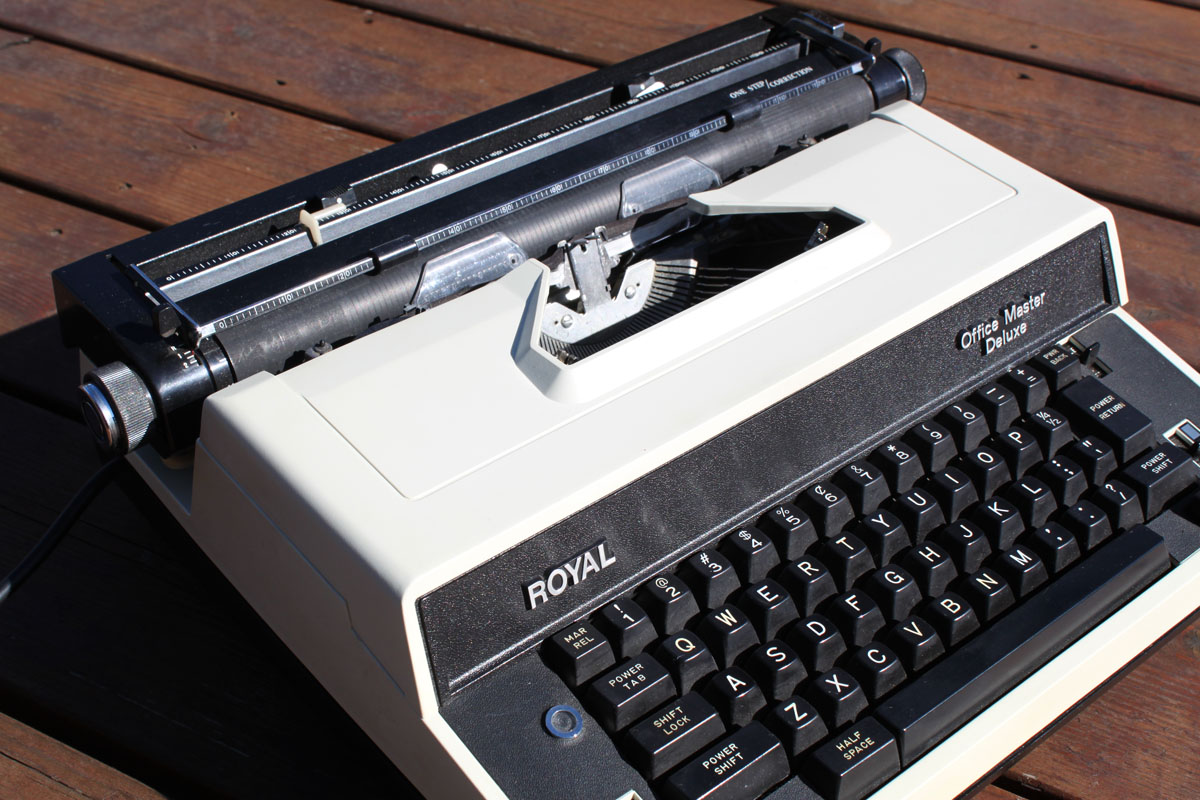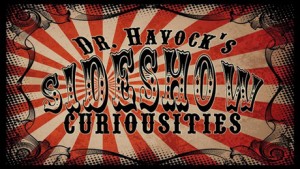Who taught you what you know?
What proficient skills do you possess because, once upon a time, someone had the patience to start from scratch and teach them to you?
Have you said “thank you”?
As I sit here composing this column it occurs to me that my fingers are quickly, and fairly accurately, navigating the “QWERTYUIOP” keyboard with little thought or effort. If you can believe it, I’m not even watching my hands. A feat which, for a guy with only one eye, may be of greater or lesser significance depending on how you look at it.
I owe it all to Mrs. Johnson.
It was a one semester class. Typing. That’s what they called it back in the day. Mrs. Johnson was our teacher. Anyone who teaches junior high is automatically a saint. The only question after that is how many stars they’ll have in their crown. Teaching a bunch of ornery pubescent 8th grade boys to type had to be good for a least a couple.
 Mrs. Johnson was a classroom veteran, having taught my Dad and I suppose some of the Dads of my fellow classmates when they were in high school. She was a no-nonsense person and, as I recall, nothing phased her. A trait which served her well when trying to get me and my buddies to pay attention long enough for her to explain the basics of the electric Royal’s and IBM’s.
Mrs. Johnson was a classroom veteran, having taught my Dad and I suppose some of the Dads of my fellow classmates when they were in high school. She was a no-nonsense person and, as I recall, nothing phased her. A trait which served her well when trying to get me and my buddies to pay attention long enough for her to explain the basics of the electric Royal’s and IBM’s.
We learned one letter at a time. Where to place our hands. What fingers to use to reach for the letters above and below. How to use the space bar, the shift key and the tab. How to set our margins. How to capitalize. And eventually, hopefully, how to do all that without looking at our hands, which she insisted would ultimately slow us down.
As the semester progressed, we were given tests. To type certain assignments from the flip-chart style textbook that stood next to our typewriters. A mistake couldn’t be erased. If you messed up, you had to start over. The purpose was to develop our attention to detail while working toward speed and accuracy.
However, my buddies and I viewed it differently. We saw it as a challenging opportunity to obliterate the other guy’s work. On test days we didn’t look at our hands as much but only because our heads were on a swivel, watching for incoming bombs of balled up masking tape, big erasers or, in extreme typing warfare, a tennis shoe. All launched with the objective of wiping out 20 minutes of keyboard perfection. If your radar and deflector shields weren’t up, your “quick brown fox jumped over the lazy dog” became “quick brown fox juiyrpyweseg”, complete with a massive key jam. The sound and score of a direct hit was immensely satisfying. To get bombed on the last line of your test and have to start over, the ultimate frustration.
Somehow, in spite of all our horseplay and inattention, Mrs. Johnson taught me how to type. In the process, she made it enough fun that when school let out for the summer, I went home and found my Grandpa’s old manual Smith-Corona. I even lugged it on our family trip to Ohio and West Virginia, journaling our adventure. A month of pounding those stiff green keys and you had finger strength enough to poke bare handed through drywall. A few years later, my parents gave me my first electric. It felt like typing on air.
Mrs. Johnson’s been gone for many years. I never had opportunity to say “thank you” for teaching me a skill I use everyday. More importantly for me, a skill that is an integral part of my passion to write and communicate. That I can sit down and quickly type out an idea, think on paper (or word processor), or otherwise express written thoughts and sentiments to others is an ability I take for granted.
Take a moment and think about something you love to do. Or a skill you use everyday. Who taught you? Make a point to find them, wherever they are, and say thanks. You’re a better person because they taught you something. And because you’re better, everyone in your life is better. Because it’s impossible to only make a difference in one person’s life. We’re all connected. Make a difference in one, and you make a difference in more.
Go make a phone call, send an email, or write a note and say “thank you for teaching me”. It will make their day. And yours, too.
I will be typing my thank you notes on the computer while looking at the screen.
And not at my hands.
Thanks, Mrs. Johnson.
Todd A. Thompson – June 14, 2008



I had the opportunity of sending a thank you card a few years back to a Homeroom teacher who went beyond his “duties” to reach out and encourage me to reach for my potential. So wonderful!
Thanks for your article
Mary – Thanks for your story. It’s fascinating what we remember about our teachers. I never thought I’d be a classroom teacher, but now that I am I’m always surprised at what students tell me they appreciate. It’s rarely what I thought (or hoped?) it would be. Going above and beyond the job description in any profession is one of the best ways to be remembered. Thanks for taking time to read! Blessings to you and yours! – tat
Thanks, Todd. Mrs, Johnson was also my teacher. I thanked my dad for a lot of things but it has only been through these later years that I have realized that many of my interpersonal skills relate back to my father. He was very good with people & loved to hear people’s stories. Good memories. Thanks again, Todd, think I need to send a thank you note to some people. ?
Katie – Thanks for your words. I was reading yesterday and came across a quote from Soren Kierkegaard, “Life can only be understood backwards, but it must be lived forwards.” Now that I’m well past the half way marker I do a lot of looking back on those people who made a difference for me. And what I picked up from them. And what I didn’t. I’ve tried to say my thank you’s but have more to go. Blessings to you! – tat